How Can AI Help Protect Information Integrity
Latvian Mission to UN
Session 159
The Geneva Plan of Action emphasizes the importance of human rights in the information society, advocating for freedom of information and the protection of privacy. It is critical to ensure that the advancement of ICTs does not come at the expense of individual rights and freedoms. The recent progress in generative Artificial Intelligence technologies poses serious challenges to achieving that goal and seems to put into question the aspiration towards information integrity - an online public space that is open, free, but also safe and secure. Purposeful information manipulation (disinformation) now presents an even graver threat than before, through use of generative AI, and its capabilities are increasing by the day. AI can also be applied for excessive online censorship and surveillance to address real or perceived information manipulation. While appropriate measures should be taken to deal with illegal and harmful online content, many potential applications of AI threaten to undermine fundamental human rights.
Yet, solutions to this conundrum are also emerging; AI itself can be part of the solution, helping navigate the path between information disorder and suppression of online freedom. While nations are developing regulatory interventions to establish guardrails for the use of AI – for example, the EU’s AI Act – researchers and civil society are devising AI-powered technological remedies. All societies can profit from sharing knowledge and best practices on ways to support a free, open, safe and secure online environment resilient to the negative impacts of information manipulation in the age of AI.
The event aims to discuss best practices for safeguarding information integrity in the context of increasing use of AI. The speakers will address the following questions:
• What risks and opportunities do AI technologies present for information integrity, i.e. an online public space that is open, free, but also safe and secure?
• How can we contribute to a more inclusive and equitable application of AI in ways that reinforce human rights and information integrity on a global scale?
• What have we learned so far about the understanding, mitigations and human rights-based AI governance solutions?

Viktors Makarovs is the first envoy on Digital Affairs to be appointed at the Ministry of Foreign Affairs of Latvia. Before assuming his current post in October 2021, he focused on international outreach to counter disinformation, resilience building and media support. Viktors Makarovs holds a degree in Political Science from the University of Copenhagen and acquired a background in the Latvian NGO think-tanking community before joining the Ministry in 2011.
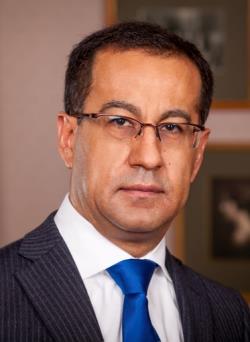
Ambassador Bahtijors Hasans is the Permanent Representative of the Republic of Latvia to the UN Office in Geneva. During his career, Mr. Hasans has served in various capacities, among them as the Permanent Representative of Latvia to the Organization for Security and Co-operation in Europe (OSCE) and other international organizations in Vienna; Ambassador Extraordinary and Plenipotentiary of Latvia to Slovenia and Kosovo and Deputy Chief of Mission at the Embassy of Latvia in Finland. He has also held diffent positions at the Ministry of Foreign Affairs of the Republic of Latvia. Mr. Hasans is a graduate of the Faculty of Law and the Faculty of Philology of the University of Latvia.
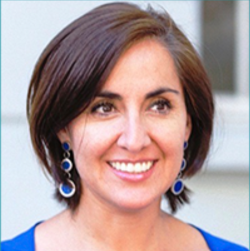
Paulina Ibarra is an expert in gender policy, open government and human rights, with more than 20 years of professional experience in Latin America and the Caribbean. She has worked with the Open Government Partnership launched by the U.S. President Barack Obama in 2011, chaired the Steering Committee of the Community of Democracies, and was selected as a member of the Steering Committee on Advancing Human Rights at the Summit for Democracy. In 2023, she was appointed by the President of Chile to be part of the Commission Against Disinformation. Recognized for her work on combating gender political disinformation, Paulina Ibarra works on strengthening democracies by protecting information integrity, civic space and human rights. She leads the Women's Observatory Against Disinformation.
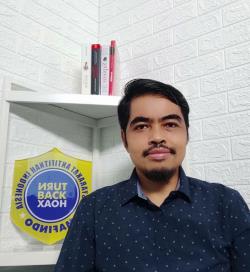
Septiaji “Zek” Eko Nugroho is an entrepreneur. He co-founded Masyarakat Anti Fitnah Indonesia (MAFINDO) in 2016, a civil society organization that deals with mis/disinformation, with 1000 volunteers from 45 cities around Indonesia. MAFINDO has also been working together with 24 reputed online media organizations to collaborate on fact-checking on Cekfakta.com. Septiaji is also a frequent speaker at seminars and mainstream media events, e.g. on TV and radio broadcasts. He graduated from Institute of Technology Bandung and obtained his master’s degree from Technical University of Munich.
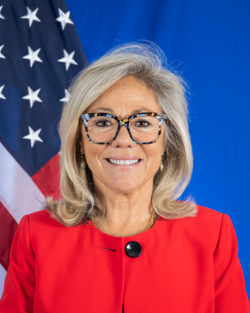
Eileen Donahoe serves as Special Envoy and Coordinator for Digital Freedom in the U.S. Department of State’s Bureau of Cyberspace and Digital Policy (CDP).
Previously, Dr. Donahoe served as the Executive Director of the Global Digital Policy Incubator at Stanford University, a multistakeholder collaboration hub focused on implications of digital technology for democracy and human rights. She served as the first US Ambassador to the United Nations Human Rights Council in Geneva during the Obama Administration. After leaving government, she was Director of Global Affairs at Human Rights Watch where she represented the organization worldwide on human rights foreign policy, with a special focus on internet governance and digital security.
Dr. Donahoe is a former member of the Board of Directors of the National Endowment for Democracy; the Board of Trustees of the Carnegie Endowment for International Peace; and the Board of Trustees of Dartmouth College. She also served on Microsoft’s Human Rights and Technology Advisory Board; the Independent Advisory Council of the Global Internet Forum to Counter Terrorism; the Board of Advisors for the Carnegie Council Artificial Intelligence and Equality Initiative; and the Freedom Online Coalition Advisory Network. Previously, she was a technology litigator at Fenwick & West in Silicon Valley. She holds an A.B. from Dartmouth, an M.T.S. from Harvard, a J.D. from Stanford Law School, an M.A. in East Asian Studies from Stanford, and a Ph.D. in Ethics and Social Theory from the GTU in the Cooperative Program with UC Berkeley. She is a member of the Council on Foreign Relations.
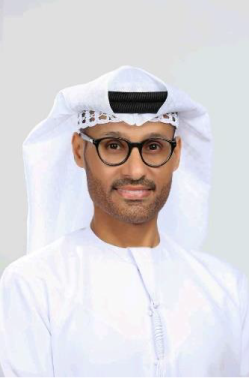
H.E. Dr. Mohamed Al Kuwaiti was appointed by the Cabinet as the Head of Cyber Security for the UAE Government since 2020. As the Head of Cyber Security, his mandate includes responsibilities as the Chairman of the UAE Cyber Security Council as well as Managing Director of the National Data Centre under the Supreme Council for National Security. He is also working as Assistant Professor (Adjunct) of Homeland Security Program at Rabdan Academy. In his current role Dr. Al Kuwaiti aims to create a fully governed approach to data privacy, sharing and processing as well as the unification and connectivity of government systems and digitization towards a smart government. His interests are consulting on detecting, monitoring and responding to cyber warfare, Network Forensics, Corporate Governance & Process, and national cyber policy. He is an honorable member of Society of Engineers –UAE, IEEE Society, Golden Key National Honor Society and Computer Society. He is a visiting lecturer on Cyber Security at few universities such as Khalifa University and National Defense College in Abu Dhabi.
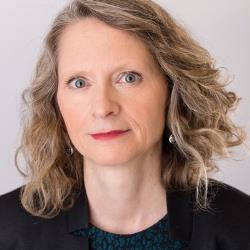
Since January 2016, Peggy Hicks has served as director of the Thematic Engagement, Special
Procedures and Right to Development Division at the UN's human rights office. From 2005 to 2015,
she was global advocacy director at Human Rights Watch, where she was responsible for
coordinating Human Rights Watch's advocacy team and providing direction to its advocacy
worldwide. Ms. Hicks previously served as director of the Office of Returns and Communities in the
UN mission in Kosovo and as Deputy High Representative for Human Rights in Bosnia and
Herzegovina. She has also worked as the Director of Programs for the International Human Rights
Law Group (now Global Rights), clinical professor of human rights and refugee law at the University
of Minnesota Law School, and as an expert consultant for the UN High Commissioner for Human
Rights. Ms. Hicks is a graduate of Columbia Law School and the University of Michigan.
-
 C3. Access to information and knowledge
C3. Access to information and knowledge
-
 C5. Building confidence and security in use of ICTs
C5. Building confidence and security in use of ICTs
-
 C9. Media
C9. Media
-
 C10. Ethical dimensions of the Information Society
C10. Ethical dimensions of the Information Society
-
 C11. International and regional cooperation
C11. International and regional cooperation
The panelists will discuss the ways in which the AI can protect information integrity which is relevant to many WSIS Action Lines. In particular, it will tackle the question on how to use the AI tools to ensure that the information provided by the media, social networks and various other actors on the internet is objective, verified and trusted. The speakers will discuss how unethical actors use the AI tools to fuel war propaganda, question fundamental values of freedom, equality, solidarity and tolerance and what can be done to counter it. Finally, the speakers will explore the ways in which all stakeholders can benefit from international cooperation in order to take full advantage of the AI tools to protect information integrity.
-
 Goal 9: Build resilient infrastructure, promote sustainable industrialization and foster innovation
Goal 9: Build resilient infrastructure, promote sustainable industrialization and foster innovation
-
 Goal 16: Promote just, peaceful and inclusive societies
Goal 16: Promote just, peaceful and inclusive societies
-
 Goal 17: Revitalize the global partnership for sustainable development
Goal 17: Revitalize the global partnership for sustainable development
Information integrity is crucial to promote just, peaceful and inclusive societies that form the foundation for sustainable development. The panelists will discuss how to ensure information integrity by using various AI tools. The panelists will also touch on the role of resilient infrastructure, innovation and international cooperation between various stakeholders in order to ensure information integrity.